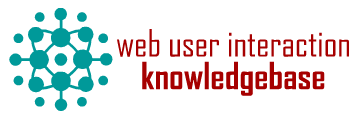Entity Change Notifier
Categories
Component ID
Component name
Component type
Maintenance status
Development status
Component security advisory coverage
Downloads
Component created
Component changed
Component body
Sends Notifications to various channels upon entity updates.
Supported Destinations
- Any queue supported by the Drupal Queue API.
- A logging channel (for test purposes only).
Notification API
Each destination should send notifications in the following format:
{
"action": "insert",
"uri": "https://example.com/jsonapi/node/article/1ad7e005-2fad-4c65-b64e-6bb68c669524",
"entity_id": 123,
"entity_uuid": "1ad7e005-2fad-4c65-b64e-6bb68c669524",
"entity_type": "node",
"bundle": "article"
}
See notification.json for a JSON schema version of this.
action is one of insert, update, or delete, mapping to the Drupal entity hooks of the same name. The URI and specific format may change depending on your site configuration.
Always fetch the URI to retrieve the most up-to-date version of the content. Content may have been edited or deleted in the time between a notification and when your application processes it. In other words, if the action is "save", your application should handle that the content may have been edited or deleted entirely.
For examples of how to query entities and walk relationships, see the JSON API documentation. Remember that all requests must contain Accept: application/vnd.api+json. Be sure to check the list of JSON API Implementations, as there may already be a library for your language or framework.
Notifications may be delayed or sent out of order especially if they are sent to a remote server. Even if your destination preserves order (like a queue), network issues may change the order notifications are sent in. Likewise, Drupal editorial users may save or edit content many times before your application can handle the notification.
RabbitMQ Setup
This module supports sending notifications to any system that works with Drupal's queue API. For example, to send notifications to RabbitMQ:
In your project root:$ composer require drupal/rabbitmq
Edit settings.php to contain:
// See the README.md in the rabbitmq module for more details.
$settings['rabbitmq_credentials'] = [
'host' => 'localhost',
'port' => 5672,
'username' => 'guest',
'password' => 'guest',
'vhost' => '/'
];
// Tell Drupal to use RabbitMQ for this specific queue only.
$settings['queue<em>service</em>{QUEUE<em>NAME}'] = 'queue.rabbitmq';
$settings['queue</em>reliable<em>service</em>{QUEUE_NAME}'] = 'queue.rabbitmq';
Comparisons to Other Modules
There are a few modules that have some overlap with Entity Change Notifier. Here's why we ended up starting something new.
Entity Pilot
Entity Pilot is not just a Drupal module but a SaaS solution. It's focus is on content federation between multiple Drupal sites, and not distribution to non-Drupal platforms. Imports into destinations are also driven by editorial, and not by an automated process.
Entity Share
Entity Share uses
JSON API, just like what Entity Change Notifier supports. Like Entity Pilot, it aims to share content to other Drupal sites, but is not dependent on a SaaS service. However, it only supports polling for entity updates, instead of pushing them out. Combined with the focus on Drupal clients, we decided to write something new.
Acquia Content Hub
Acquia Content Hub is a SaaS offering for ingesting content into Drupal. It was overkill for our needs, and we needed something not dependent on a remote service.
What should I use?
If you need to share content to other Drupal sites, and not anything else, we suggest investigating Entity Pilot or Entity Share first. If you only need to send content to non-Drupal consumers, then Entity Change Notifier is a good solution. If you need to do both, consider using more than one module, or helping us develop an integration with one or both of the above modules.
